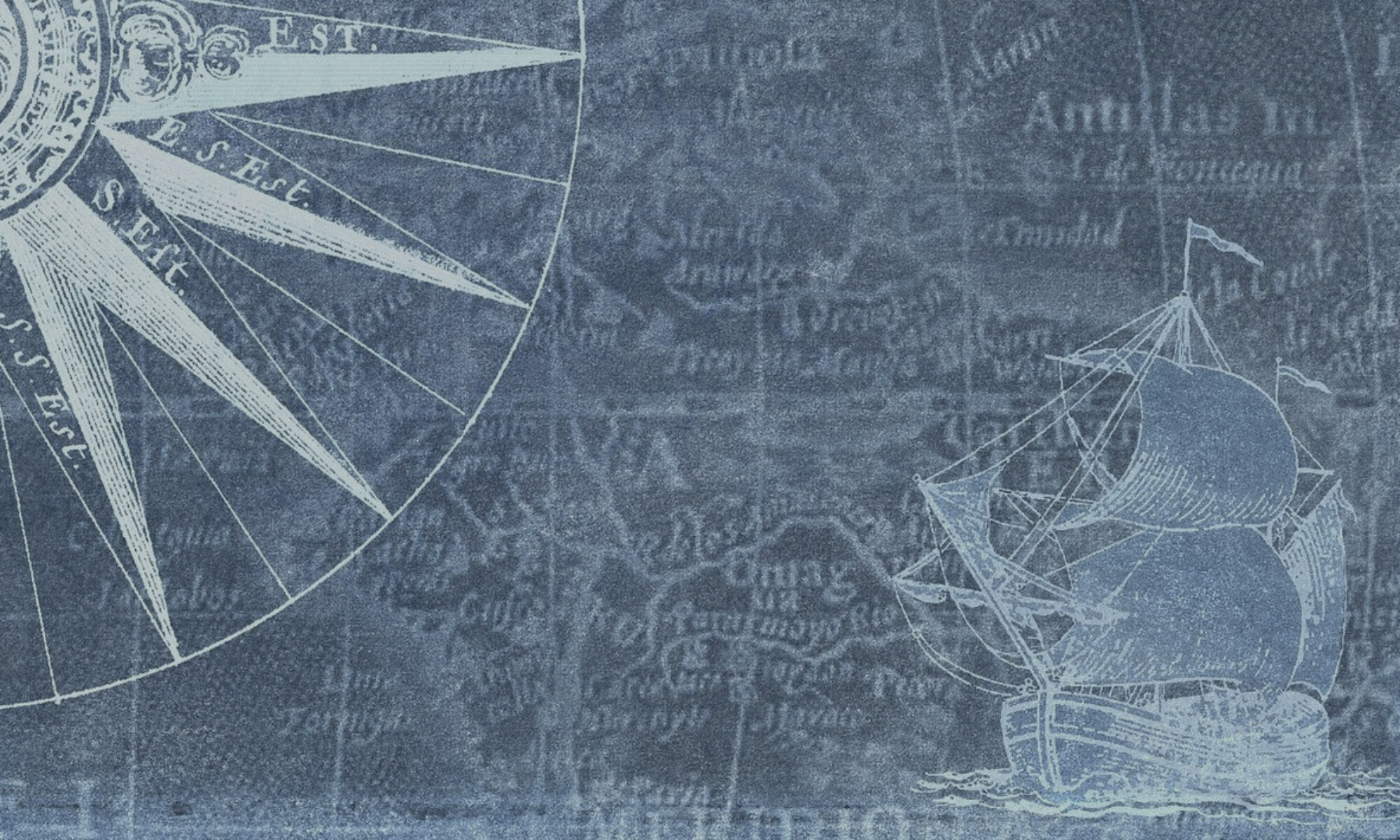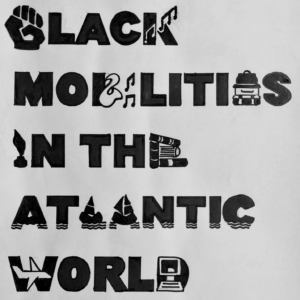BLACK MOBILITIES IN THE ATLANCTIC WORLD
International Conference
Institute for Black Atlantic Research
University of Central Lancashire, UK
13-14 January 2022 | online via Microsoft Teams
Part of the project BIMAAR is the academic conference “Black Mobilities in the Atlantic World.” Below, you find the conference program and the call for papers.
CONFERENCE PROGRAM AND VIDEO RECORDINGS
PDF Download: Program Black Mobilities
The keynote lecture and the creative practitioners’ roundtable discussion have been recorded and are available on YouTube. You can find the respective links by scrolling down the programme to the respective sessions here or access them from the following page: VIDEO RECORDINGS
Thursday, 13 January
11:00-11:10 Welcome Addresses
11:15-12:45 Panel 1: Black Oceanic Passages
Chair: Alan Rice
“An Ocean Drama:
Poetics of Mobility in Canisia Lubrin’s The Dyzgraphxst”
Barbara Gföllner, University of Vienna
“Recipes and Reciprocities:
Literary, Racial and Interspecies Histories of the Salt Fish Diaspora”
Mapule Mohulatsi, University of the Witwatersrand
“Waves of Emancipation:
Olaudah Equiano’s Atlantic Travels beyond the Middle Passage”
Astrid Haas, University of Central Lancashire
12:45-13:45 Lunch Break
13:45-15:30 Panel 2: Black Mobilities between the Caribbean, Africa, and Europe
Chair: Raphael Hoermann
“Seeds of Empire in the Black Anthropocene:
Collapsing Temporal and Spatial Distances in the Diasporic Caribbean”
Bergit Arends, Courtauld Institute of Art, London, and Joy Gregory, Independent Artist and University of the Arts, London
“Haitian Exiles as Black Atlantic Nomads during the 1960s”
Jeanne Essame, Worcester Polytechnic Institute
“Transatlantic Literary and Visual Inspirations
in George Hallett’s Black Photographic Representations”
Christine Eyene, University of Central Lancashire
“The Mobilities and Immobilities of Development, Race and Gender
in Jamaica: Here Comes the Sun (2016) by Nicole Dennis-Benn”
Gigi Adair, Bielefeld University
15:30-15:45 Tea / Coffee Break
15:45-17:30 Panel 3: Black Atlantic Slavery and Its Legacies
Chair: Andrea Sillis
“Either Witches or Saints: On Excavating the Colonial Archive
or the Vindication of the Female Enslaved”
Marcelo José Cabarcas Ortega, University of Pittsburgh
“Problematizing Itinerancy as Trope for ‘Sojourner’ Truth”
Claudine Raynaud, University of Montpellier 3—Paul Valéry
“Lost Friends: Writing Black Family Histories
through ‘Information Wanted’ Advertisements”
Katherine Burns, University of Edinburgh
“National Narrative’: Interrogating the Links between
Slavery and French Atlantic Heritage, Amplifying Black Diasporic Voices”
Elisa Moris Vai, Independent Artist and University of Lille
17:30-17:45 Tea / Coffee Break
17:45-19:00 Keynote Lecture
Chair: Astrid Haas
“Provincializing Europe:
Capturing Hidden Narratives of Gambian Mobility and Return”
Pamela Kea, University of Sussex
Public Recording: KENOTE LECTURE
19:05-19:30 Digital Reception
Launch of the BIMAAR Website – Astrid Haas
Presentations of Local Community Organisations:
Preston Black History Group, Lancaster Black History Group, and Sewing Café Lancaster
Friday, 14 January
11:00-12:45 Panel 4: Black Atlantic Sounds and Performances
Chair: Christine Eyene
“Black Atlantic Mobilities and In Dahomey: Broadway and the Community”
Jennafer Holt, University of Central Lancashire
“Black Artists in Motion and the Making of Space:
The Mobilization of Modernist Entertainment Infrastructures
and the Politics of Black Performance Culture in Interwar Paris”
Carmen Dexl, University of Regensburg
“The Roots and Routes of Reggae:
Textual, Cultural and Physical Mobility in Jamaican Popular Music”
David Bousquet, University of Burgundy
“In Response to the Archive:
Researching Post-Colonial Identity through Digital Media”
Hakeem Adam, Independent Artist and University of the Arts, Bremen
12:45-13:45 Lunch Break
13:45-15:30 Panel 5: Black Mobilities in contemporary African (Diaspora) Writing
Chair: Raphael Hoermann
“New African Diasporas and Afropolitanism in the Work of Taiye Selasi”
Elisa Bordin, Ca’ Foscari University
“Black African Families and New Modes of Being in the World”
Cristovão Nwachukvu, University of Florida
“No (Particular) Place to Go’: (Im-)Mobility and Trauma
in Yaa Gyasi’s Homegoing and Colson Whitehead’s The Nickel Boys”
Dirk van Rens, University of Eastern Finland
“Space, Im/Mobility, and Transnational Self-Making
in Blonde Roots and Homegoing”
Marian Ofori-Amoafo, University of Bayreuth
15:30-15:45 Tea / Coffee Break
15:45-16:45 Panel 6: Black Inter-American Movements and Mobilities
Chair: Eduardo Tasis
“Black Movements in Latin America:
Contemporary Political Landscapes and Resilient Ecosystems”
María del Pilar Ramírez Gröbli, University of Bern
“Knowing Your Name Only After You’re Gone:
Murals and Black Lives Matter”
Hannah Jeffery, University of Edinburgh
16:45-17:45 Tea / Coffee Break and Optional Chat
17:45-19:00 Creative Practitioners’ Roundtable: Black Creativity in Northern England
Chair: Alan Rice
Tayo Aluko, Liverpool
Christine Eyene, Preston and London
Adam Lowe, Manchester
Jade Montserrat, Whitby
Public Recording: ROUNDTABLE DISCUSSION
19:05-19:15 Valedictory Address
CALL FOR PAPERS:
PDF Download:Black Mobilities CfP
Excerpts:
Practices and discourses of mobility have been crucial for the Black experience across the Atlantic World. Civilisations from Africa and Europe have been in contact since antiquity, and interactions between Africa and the Americas may date back to premodern times as well. Later, Atlantic slavery and the globalised economy it enabled depended on the mobile placement and displacement of unfree black labour on both sides of the ocean. The acts and movements of Black resistance and liberation in the circum-Atlantic resulted from and further enabled the discursive and corporeal mobilisation of Black individuals and groups, from slave revolts to Black Lives Matter. Moreover, many works of Black cultural expressions not only resulted from various forms of Black mobility but, in turn, also sought to engender such mobilities themselves.
The conference “Black Mobilities in the Atlantic World” explores forms and developments of Black mobilities across the circum-Atlantic region from the colonial era to the present. It seeks to bridge often separately-studied fields such as Black Diaspora Studies, Area Studies, Transnational and Mobility Studies to complement—and complicate—the discourses of Black mobilities in the Atlantic World. We particularly wish to discuss, on the one hand, the intersectionalities between social identity categories such as ethnicity, gender, class, or religion, in the context of African and Black diasporic mobilities in the circum-Atlantic. On the other hand, we are interested in addressing the interaction between social, cultural, or economic practices and discourses. This includes especially articulations of socio-cultural experiences in communal and individual narratives, visual and performing art forms, or socio-political movements as well as the function of these types of articulations in the formation of individual and collective identities.
The conference welcomes presentations on Black mobilities in and among the Americas, Africa and Europe from a variety of academic disciplines, such as history literature, art history, music, social or political science, among others. It particularly seeks to engage with, though not limiting itself to, the following types of Black diasporic mobility in the Americas:
-
- the physical mobility and mobilisation of Black people across geographic spaces
- their social, economic, and/or cultural mobility and mobilisation between different cultures and social strata; and/or
- their discursive mobilities and mobilisation, that is, their uses of different types and practices of social and/or artistic discourses for purposes of Black empowerment and mobilisation.
Convener
Dr. Astrid Haas
Institute for Black Atlantic Research (IBAR)
School of Humanities, Language and Global Studies
University of Central Lancashire, UK
ACKNOWLEDGMENTS:
We graciously acknowledge the support of the following institutions:



This conference is connected to the research project “Black Inter-American Mobilities and Autobiography in the Age of Revolutions,” funded through a grant from the European Union’s Horizon 2020 research and innovation program under the Marie Skłodowska-Curie grant agreement No. 834975.


